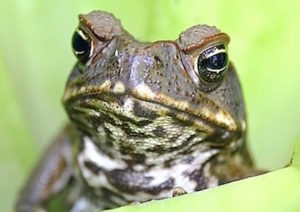Yawning: Puzzler of the Ages
Hippocrates took a crack at it, postulating that this mysterious activity was designed to flush harmful air from the body. Cut to the 19th century, when that notion lost traction. Shutterstock
Shutterstock
Hippocrates took a crack at it, postulating that this mysterious activity was designed to flush harmful air from the body. Cut to the 19th century, when that notion lost traction.
So, the lingering question remains about an extremely common — and contagious — activity that humans share with animals of various stripes: What’s with the whole yawning thing?
This may not sound like the most pressing news of the day, and indeed it isn’t, but it’s probably a subject that just about everyone has mused about at one time or another, particularly when yawning purely in response to observing someone else’s yawn in close proximity. Or reading about yawning, for that matter.
Yawning yet?
Also read: Do We Choose Friends With Similar DNA?
The BBC drilled deeply into the subject in a recent report that offers a potential scientific breakthrough:
With so many competing and contradictory ideas, a grand unifying theory of yawning may seem like a distant speck on the horizon. But over the last few years, one underlying mechanism has emerged that could, potentially, appease all these apparent paradoxes in one fell swoop. Andrew Gallup, now at the State University of New York at Oneonta, was first inspired with the idea during his undergraduate degree, when he realised that yawning might help to chill the brain and stop it overheating. The violent movement of the jaws moves blood flow around the skull, he argued, helping to carry away excess heat, while the deep inhalation brings cool air into the sinus cavities and around the carotid artery leading back into the brain. What’s more, the strenuous movements could also flex the membranes of sinuses – fanning a soft breeze through the cavities that should cause our mucus to evaporate, which should chill the head like air conditioning.
The most obvious test was to see if people are more or less likely to yawn in different temperatures. In normal conditions, Gallup found that around 48% felt the urge to yawn, but when he asked them to hold a cold compress to their foreheads, just 9% succumbed.
Before we get too conclusive, though, it should be noted that Gallup’s take on the topic has not encountered support from all corners of the scientific community. Others theorizing about the meaning of the activity link yawning to sex — so, it would seem, it might not signify boredom in every instance.
–Posted by Kasia Anderson
Your support matters…Independent journalism is under threat and overshadowed by heavily funded mainstream media.
You can help level the playing field. Become a member.
Your tax-deductible contribution keeps us digging beneath the headlines to give you thought-provoking, investigative reporting and analysis that unearths what's really happening- without compromise.
Give today to support our courageous, independent journalists.






You need to be a supporter to comment.
There are currently no responses to this article.
Be the first to respond.